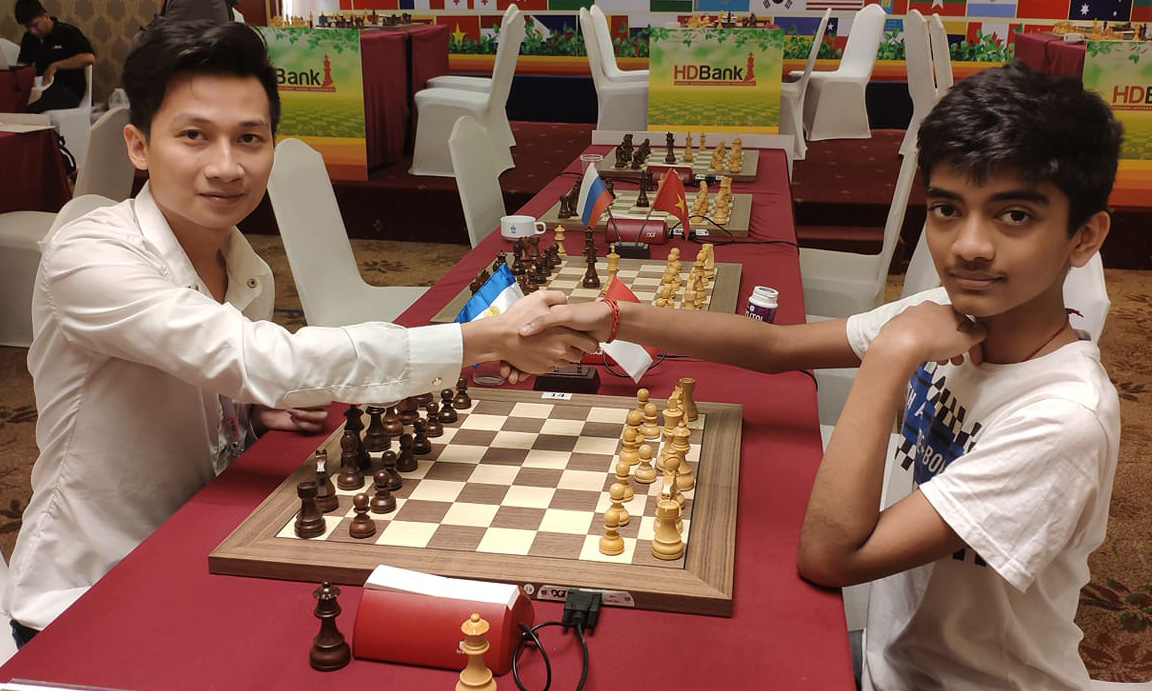The big “Freestyle Chess” event in Las Vegas was supposed to be new and exciting, but it caused a lot of problems. After another top player, Hikaru Nakamura spoke up, Fabiano Caruana is now sharing his side. In an interview, he confirmed that his video about the event was even taken down! Caruana explains how loud crowds, special computer scores (eval bars), and weak safety rules made the games unfair. This article looks at why Caruana believes the show became more important than honest chess playing.
The Deleted Interview: A Misstep, Not Censorship
Caruana confirms his interview was indeed deleted by the Freestyle Chess organization, though it was later restored due to backlash. He doesn’t believe their intention was outright censorship, but rather to “have time to discuss what to do.”
However, he strongly implies that attempting to hide such content is counterproductive, referencing the “Streisand effect.” He felt it was important to speak up to help the organizers improve future events, as he intends to participate again.
Key Quotes:
- “They put it back up today… I don’t think they had any need to to remove it in the first place.”
- “If you try to hide something, usually it’s uh tends to come out in a more [fourfold].”
- “I had some complaints which I’m sure they’ll work in the future to to do better. Uh, I don’t think it really made sense to not say anything because, you know, they’re going to have more events. I’m probably going to play more of their events.”
- “My result wouldn’t not have affected my opinion. Like also if I’d been Hikaro, it wouldn’t have affected my opinion. If I won the whole thing, it wouldn’t have affected my opinion about how it should have been organized.”
Audience Interference and Lack of Integrity
Caruana’s most significant critique revolves around the live audience’s proximity, noise, and access to real-time information, which he believes fundamentally compromises the integrity of professional chess.
- Audible Reactions as “Huge Tells”: He observed that audience reactions, especially to sharp changes in the eval bar, served as a “huge tell” for players, even those wearing headphones. He recounts a specific queen endgame between Hikaru and Levon Aronian where he, as an observer, could clearly infer game-state changes from audience gasps, knowing the players could also hear it. He also describes his own game against Hikaru where “non-stop noise,” which he categorized as “screaming,” occurred during a critical time scramble, making it “very difficult” to concentrate.
- Key Quotes: “The audience is reacting like very audibly, and I can also see the players can hear it.” “It’s a huge tell. Not only distracting, but it’s a huge tell.” “Even if not, it gets in your head. Did I miss a win? Correct. Did I miss a draw?” “After queen to A3 it was just non-stop noise. And I would I would categorize it as screaming.” “You can’t concentrate when you have 5 seconds and there’s very very loud noise.”
- Eval Bar in Playing Hall: Caruana highlights the major issue of the eval bar being visible to the audience in the playing hall, something he didn’t initially know about but Hikaru brought up. He explains that rapid eval bar swings elicit strong, immediate reactions that are far more jarring and informative than delayed commentary. He explicitly states that this is not “needed” and has “nothing to do with chess,” calling it a “completely meaningless thing” and a “yo-yo.”
- Key Quotes: “The audience can actually see the valbar… And then we got into that discussion because obviously the phone thing became entirely separate issue when um when you just have the information freely freely there.” “When you just see the like split second, you know, one side to the other, it’s it’s a whole different sort of thing.” “If you really need something that it has nothing to do with chess, it’s just like it’s it’s a yo-yo. It it has nothing to do with chess.”
- Cheating Possibilities (Visual Element): He points out the serious security lapse where players could easily interact visually with the audience, who had phones with eval bar access. He even devises a simple scenario where a player could receive signals from an accomplice in the front row by subtly looking at them when exiting and entering the stage. He stresses that while he doesn’t believe it happened, the possibility should be eliminated.
- Key Quotes: “There is the visual element where if I want I can have someone in the audience who signals and I can freely see them and they have information because they had their phones with them too.” “That’s why you can’t have a visual element between this the audience and the players.” “If you don’t scan the audience, it’s kind of for nothing.”
- Comparison to Other Sports (Tennis/Golf) is Flawed: Caruana refutes the organizers’ comparison of chess to sports like tennis or golf, arguing that chess has a unique element of “secret information” (the game state in the players’ minds) that other sports lack. In tennis, for instance, everyone sees the ball, and players’ shots aren’t based on audience yells.
- Key Quotes: “It doesn’t make a lot of sense because in tennis first of all sure the audience generally is told to be quiet… but the noise is pretty glaring between the players… in tennis you don’t have you don’t have secret information, right? In chess, you do.”
Related: Jan Henric Buettner Responds to Hikaru Nakamura’s Criticism: “We’re Evolving, Not Stubborn”
Flawed Headphone Policy
Caruana confirms the confusion and inconsistency around the headphone policy, which changed mid-event. He believed they were mandatory, but then observed some players (including Hikaru) not wearing them because they’d heard it was optional, creating an unfair advantage. He also notes the impracticality of some headphone solutions (white noise being unpleasant, in-ear plus outer-ear being physically annoying).
- Key Quotes: “Suddenly things had changed without the players agreement. It had just changed behind the scenes… As it turns out, not everyone was wearing headphones because some other people had heard that it was optional, which of course, if it’s optional, then you might as well not do it.” “It makes no sense to have it optional.”
Event Intent vs. Execution: Serious Competition vs. Exhibition
Caruana draws a clear line between serious competitive events and exhibition events. He views Freestyle Chess as the former, and therefore expects strict measures to ensure integrity. He contrasts it with an upcoming exhibition event where he won’t complain about noise because he’s going into it with a different expectation.
- Key Quotes: “We also have to differentiate between serious events and exhibition events… When I go to freestyle events, I take them as serious events. Where I I care about my result. There’s prestige on the line. There’s money. There’s rating nowadays.” “If they just paid me a starting fee, no prizes, no tour points, and told me you play and these are this is the way the tournament is, I’m not going to complain.” “If it’s your show, you run the show how you want. But, uh, if it’s another way, then then I’m going to insist on like very serious measures.”
See more: Nakamura vs. Freestyle Chess: A Growing Rift or Healthy Debate?
Proposed Solutions and Organizational Blind Spots
Caruana believes simple and effective solutions exist but were not implemented because the organizers “didn’t think it through.” He suggests a glass box or barrier for players (like in World Championship matches) or a darkened audience area. He attributes these oversights to the organizers, who are “not chess players for the most part,” failing to consider the event from a player’s perspective.
- Key Quotes: “We should find a system that doesn’t necessarily damage the whole integrity of the game… The question is, and they’re spending so much money like it’s not that it’s a money issue or a logistics issue. I hope it’s not because they’re spending so much money. They just didn’t think it through.” “Have a glass door. Have have the players play in a fishbowl like in the World Championship match… They just didn’t think it through at the beginning and then it was too late.” “You have to imagine that you’re playing which I can do and you can do but this is from you know you guys have been chatting about this type of situations in Visen House in in Paris.”
TL,DR
Fabiano Caruana’s strong words about “Freestyle Chess” send a clear message: important chess games must be fair. He showed how noisy fans, quick computer scores, and poor security made it hard for players to focus. Caruana thinks the event cared more about entertaining people than about letting players concentrate. He suggests simple fixes, like putting players in glass boxes. Both Caruana and Nakamura are saying that new ideas for chess are good, but they should never mess up the honesty of the game.

I’m Xuan Binh, the founder of Attacking Chess, and the Deputy Head of Communications at the Vietnam Chess Federation (VCF). My chess.com and lichess rating is above 2300. Send me a challenge or message via Lichess. Follow me on Twitter (X) or Facebook.


1 thought on “Fabiano Caruana’s BOMBSHELL: The Deleted Interview & Freestyle Chess’s Integrity Problem”
Comments are closed.